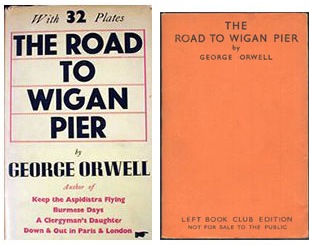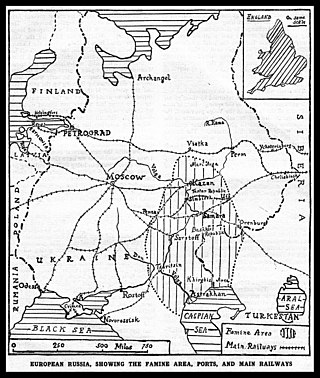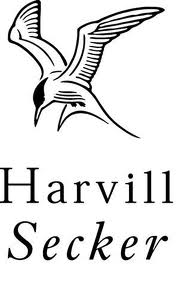Related Research Articles

Animal Farm is a beast fable, in the form of a satirical allegorical novella, by George Orwell, first published in England on 17 August 1945. It tells the story of a group of anthropomorphic farm animals who rebel against their human farmer, hoping to create a society where the animals can be equal, free, and happy. Ultimately, the rebellion is betrayed and, under the dictatorship of a pig named Napoleon, the farm ends up in a state as bad as it was before.

Eric Arthur Blair, better known by his pen name George Orwell, was an English novelist, essayist, journalist, and critic. His work is characterised by lucid prose, social criticism, opposition to totalitarianism, and support of democratic socialism.

Sir Victor Gollancz was a British publisher and humanitarian. Gollancz was known as a supporter of left-wing politics. His loyalties shifted between liberalism and communism; he defined himself as a Christian socialist and an internationalist. He used his publishing house chiefly to promote pacifist and socialist non-fiction, and also launched the Left Book Club.

The Road to Wigan Pier is a book by the English writer George Orwell, first published in 1937. The first half of this work documents his sociological investigations of the bleak living conditions among the working class in Lancashire and Yorkshire in the industrial north of England before World War II. The second half is a long essay on his middle-class upbringing, and the development of his political conscience, questioning British attitudes towards socialism. Orwell states plainly that he himself is in favour of socialism, but feels it necessary to point out reasons why many people who would benefit from socialism, and should logically support it, are in practice likely to be strong opponents.
Victor Gollancz Ltd was a major British book publishing house of the twentieth century and continues to publish science fiction and fantasy titles as an imprint of Orion Publishing Group.

Rationing was introduced temporarily by the British government several times during the 20th century, during and immediately after a war.
The Left Book Club was a publishing group that exerted a strong left-wing influence in Great Britain from 1936 to 1948.
Betrayal of the Left was a book of essays published on 3 March 1941 by the Left Book Club, edited and largely written by Victor Gollancz. The book had a preface by Harold Laski.

The term "home front" covers the activities of the civilians in a nation at war. World War II was a total war; homeland military production became vital to both the Allied and Axis powers. Life on the home front during World War II was a significant part of the war effort for all participants and had a major impact on the outcome of the war. Governments became involved with new issues such as rationing, manpower allocation, home defense, evacuation in the face of air raids, and response to occupation by an enemy power. The morale and psychology of the people responded to leadership and propaganda. Typically women were mobilized to an unprecedented degree.

The Russian famine of 1921–1922, also known as the Povolzhye famine, was a severe famine in the Russian Soviet Federative Socialist Republic that began early in the spring of 1921 and lasted until 1922. The famine resulted from the combined effects of economic disturbance from the Russian Revolution, the Russian Civil War, and the government policy of war communism. It was exacerbated by rail systems that could not distribute food efficiently.

The entirety of Germany was occupied and administered by the Allies of World War II from the Berlin Declaration on 5 June 1945 to the establishment of West Germany on 23 May 1949. Unlike occupied Japan, Germany was stripped of its sovereignty and former state: after Nazi Germany surrendered on 8 May 1945, four countries representing the Allies asserted joint authority and sovereignty through the Allied Control Council (ACC) under the Berlin Declaration of 5 June 1945 that led to the fall of the German Reich. At first, Allied-occupied Germany was defined as all territories of Germany before the 1938 Nazi annexation of Austria; the Potsdam Agreement on 2 August 1945 defined the new eastern German border by giving Poland and the Soviet Union all regions of Germany east of the Oder–Neisse line and divided the remaining "Germany as a whole" into four occupation zones, each administered by one of the Allies.

Harvill Secker is a British publishing company formed in 2005 from the merger of Secker & Warburg and the Harvill Press.
"Inside the Whale" is an essay in three parts written by George Orwell in 1940. It is primarily a review of Tropic of Cancer by Henry Miller with Orwell discursing more widely over English literature in the 1920s and 1930s. The biblical story of Jonah and the whale is used as a metaphor for accepting experience without seeking to change it, Jonah inside the whale being comfortably protected from the problems of the outside world. It was published, alongside two other pieces by Orwell, 11 March 1940 by Gollancz in Orwell's first collection of essays, Inside the Whale and Other Essays.
"The Lion and the Unicorn: Socialism and the English Genius" is an essay by George Orwell expressing his opinions on the situation in wartime Britain. The title alludes to the heraldic supporters appearing in the full royal coat of arms of the United Kingdom. The essay was first published on 19 February 1941 as the first volume of a series edited by T. R. Fyvel and Orwell, in the Searchlight Books published by Secker & Warburg. Orwell's wife Eileen Blair described the theme of the essay as "how to be a socialist while Tory."
"As I Please" was a series of articles written between 1943 and 1947 for the British left-wing newspaper Tribune by author and journalist George Orwell.
The "London Letters" were a series of fifteen articles written by George Orwell when invasion by Nazi Germany seemed imminent, and published in the American left-wing literary magazine Partisan Review. As well as these "London Letters", PR also published other articles by Orwell.

The bibliography of George Orwell includes journalism, essays, novels, and non-fiction books written by the British writer Eric Blair (1903–1950), either under his own name or, more usually, under his pen name George Orwell. Orwell was a prolific writer on topics related to contemporary English society and literary criticism, who has been declared "perhaps the 20th century's best chronicler of English culture." His non-fiction cultural and political criticism constitutes the majority of his work, but Orwell also wrote in several genres of fictional literature.

Nineteen Eighty-Four is a dystopian novel and cautionary tale by English writer George Orwell. It was published on 8 June 1949 by Secker & Warburg as Orwell's ninth and final book completed in his lifetime. Thematically, it centres on the consequences of totalitarianism, mass surveillance and repressive regimentation of people and behaviours within society. Orwell, a democratic socialist, modelled the authoritarian state in the novel on the Soviet Union in the era of Stalinism, and Nazi Germany. More broadly, the novel examines the role of truth and facts within societies and the ways in which they can be manipulated.
The Soviet famine of 1946–1947 was a major famine in the Soviet Union that lasted from mid-1946 to the winter of 1947 to 1948.

American food policy in occupied Germany refers to the food supply policies enacted by the U.S., and to some extent its dependent Allies, in the western occupation zones of Germany in the first two years of the ten-year postwar occupation of Western Germany following World War II.